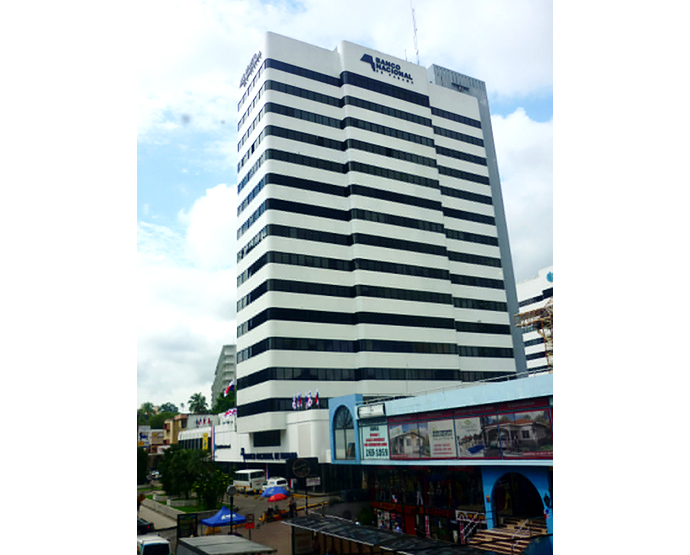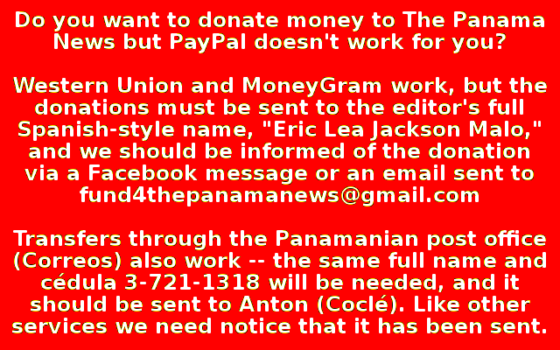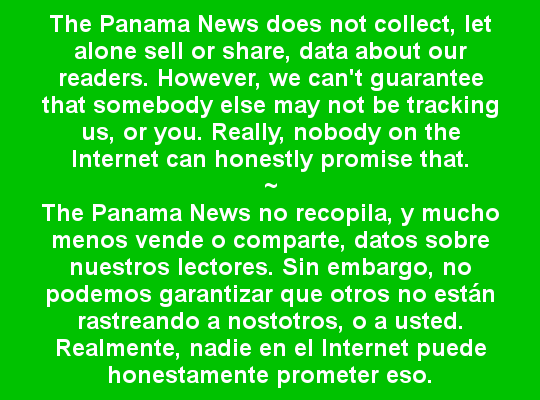The Banco Nacional de Panamá — a strange hybrid from the start.
Abdul Waked’s claim isn’t the only scandal, but it’s for double the amount of the National Bank of Panama’s cash on deposit
Supreme Court to hear potentially bankrupting suit against the BNP
by Eric Jackson
The Supreme Court’s Civil Bench has agreed to hear a lawsuit against the National Bank of Panama (BNP, by its Spanish initials) in which the Lebanese-Panamanian businessman seeks $1.268 in damages. The BNP has paid-in capital of only $650 million.
The claim is that when the US Treasury Department denounced the existence of a “Waked Money Laundering Organization” the BNP determined that Abdul Waked’s businesses were “commercially dead” and allowed creditors to freeze or seize those companies’ deposits in the bank. But the US conspiracy theory never held up in court. In fact, as to Abdul Waked there were never any civil or criminal charges brought. US courts ruled that he had no recourse, nor any right to see any evidence against him. As to his Lebanese-Colombian nephew Nidal Waked, criminal charges for drug money laundering were summarily thrown out by the US courts and in the end Nidal pleaded guilty to accepting a loan from a US bank for one purpose but spending it for another. As that loan had been repaid, the sentencing judge rejected federal prosecutors’ demand for a long prison term.
Meanwhile Abdul Waked was forced by US sanctions that included threats against those who did business with him, combined with the BNP’s denial of access to his assets to sell of much of his business empire at a loss. The big prize for Uncle Sam was the forced sale of a majority stake in the La Estrella and El Siglo newspapers, in favor of an expected to be pro-US new ownership that was vetted by the American Embassy. Abdul Waked’s lawsuit is about the business losses forced upon him by the bank’s actions.
The bank’s lawyers and fellow bankers are arguing that the suit is invalid first because the BNP had a greater duty to claimed creditors than to its depositor, second because the bank is the government’s, and third because bank employees are immune from liability for things that they do in furtherance of government policies.
Why such short reserves, and just what the BNP is and is supposed to be are relevant side questions.
Especially so, when there are multiple concurrent scandals and a long history at the bank. Top of the news lately is how some 318 checks in favor of about 35 persons, coming from at least 29 legislators, were drawn against a National Assembly payroll account at the BNP in the aggregate amount of some $808,000. All of these checks went through a single cashier and the supposed beneficiaries are denying any knowledge and even more adamantly having received any money. Prosecutors are leaning on the cashier but the ordinary prosecutors and courts have no jurisdiction over legislators. The Supreme Court investigates, tries and sentences legislators, while the National Assembly investigates, tries and sentences high court magistrates. There has for many years, with only a few exceptions, been a non-agression pact between the two institutions. Thus it may be that one corrupt bank cashier will take the fall for dozens of corrupt politicians — but for the latter the equation may change dramatically starting on July 1 if the voters oust many or all incumbent deputies in the May elections.
And what IS the BNP? In many respects it’s considered a sister institution to all of Latin America’s central banks. But unlike those, and unlike the Federal Reserve in the USA, the BNP doesn’t issue currency. Coins, and sometimes corrupt games that get played with issuing those, yes. But the Panamanian balboa is the US dollar. In that sense the Fed is Panama’s central bank and has been since 1904. Shorn of major responsibilities of their regional counterparts, the political patronage appointees who head the BNP have over the years been less committed to considerations like prudence, due diligence and ethical standards.
Deeper yet, the scant resources on hand at the BNP are a function of Panama’s serious public debt. Yes, you can read all this purchased “journalism” about the Panamanian economic miracle, none of which will mention that Ramón Fonseca Mora of Panama Papers infamy was President Varela’s chief of staff at the start of the current administration. Nor does this genre of story mention the money laundering house of cards that much of Panama’s business scene actually is. And is US Secretary of State Mike Pompeo threatening retaliation against Panamanians who do business with the Chinese? Look at how precarious Panama’s main public bank is, and then figure how that plays into US fears of China coming in dangling attractive lines of credit.













